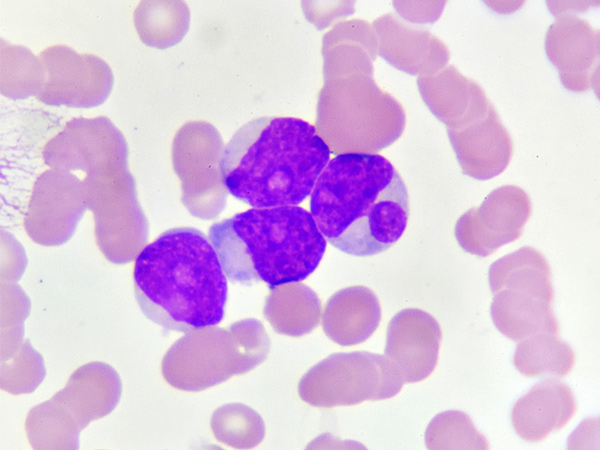A Targeted Therapy for Certain Patients With Acute Myeloid Leukemia
The FDA approved a new regimen that includes a molecularly targeted therapeutic for some older leukemia patients not eligible for intensive chemotherapy.
The U.S. Food and Drug Administration (FDA) has approved ivosidenib (Tibsovo) in combination with the chemotherapy azacitidine for patients with newly diagnosed acute myeloid leukemia (AML) with a mutation in the isocitrate dyhydrogenase-1 (IDH1) gene; this treatment is specifically for patients who are 75 years or older and have comorbidities that preclude the use of intensive chemotherapy. Ivosidenib is an IDH1 inhibitor that blocks the activity of mutated IDH1. An FDA-approved test is available to detect the mutation and select patients for the treatment.
The approval is based on data from a randomized, double-blind, placebo-controlled phase III clinical trial that evaluated the efficacy and safety of ivosidenib in combination with azacitidine in adult participants with previously untreated IDH1-mutated AML who were not eligible for intensive induction chemotherapy due to the presence of comorbidities, including severe heart, lung, or liver disease. These patients typically receive less intensive, noncurative regimens, but they tend to have poor outcomes.

In the study, 146 patients were randomly assigned to receive either ivosidenib in combination with azacitidine or placebo plus azacitidine. The median overall survival was 24 months in the ivosidenib plus azacitidine arm and 7.9 months in the placebo plus azacitidine arm. Complete remission (CR) was achieved in 47 percent of participants who received ivosidenib plus azacitidine and 15 percent of those who received placebo plus azacitidine. The median duration of CR was not estimable in the ivosidenib plus azacitidine arm and 11.2 months in the placebo plus azacitidine arm. During the follow-up time, treatment failure, relapse from remission, or death occurred in 65 percent of the patients on the ivosidenib plus azacitidine arm and 84 percent of those on the placebo plus azacitidine arm.
AML is the most common type of acute leukemia in adults and is characterized by accumulation of immature white blood cells in the blood and bone marrow. According to federal statistics, an estimated 20,050 people will be diagnosed with AML in the United States in 2022.
The FDA decision was rendered on May 25, 2022.
